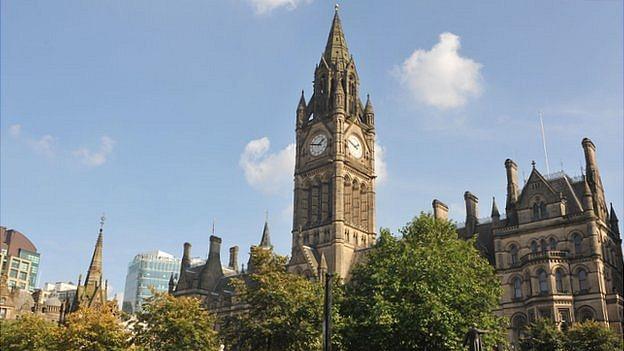Budget 2015: New powers announced for Greater Manchester
- Published
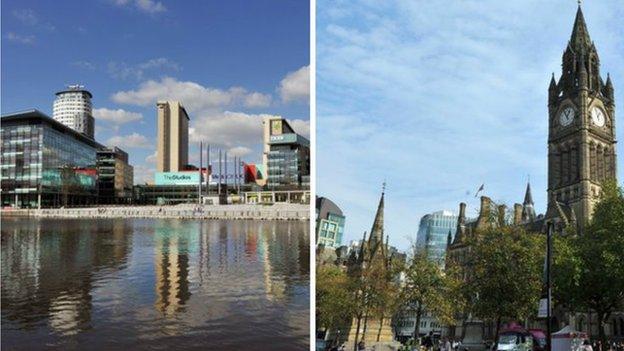
Greater Manchester Combined Authority will be given more power to run its own affairs
The Chancellor has used the Budget to announce further devolution of powers to Greater Manchester.
George Osborne told the Commons that the city region would take control of fire services, land commission and children's services.
He also announced £30m of funding for "Transport for the North" to help connect Northern England.
Labour MPs heckled the Chancellor with claims that not enough progress was being made.
'Efficient transport'
Agreement was reached with the 10 councils which make up the Greater Manchester Combined Authority to take control of the new powers.
Tony Lloyd, interim mayor of Greater Manchester, said: "By working together, we are increasingly seeing Greater Manchester being empowered to make decisions which address the region's priorities and needs - rather than being dictated to by Whitehall and Westminster."
But he said the government had failed to keep promises on the rail projects that "are key to the delivery of northern economic growth".
The "Northern Powerhouse" strategy was recently questioned when the government announced that electrification of the Manchester to York rail line was being paused.
During the Budget opposition response, acting Labour leader Harriet Harman accused ministers of undermining their own plans to boost the North.
Mr Osborne also announced the government was working on deals to extend the idea of the "Northern Powerhouse" to other parts of the North of England.
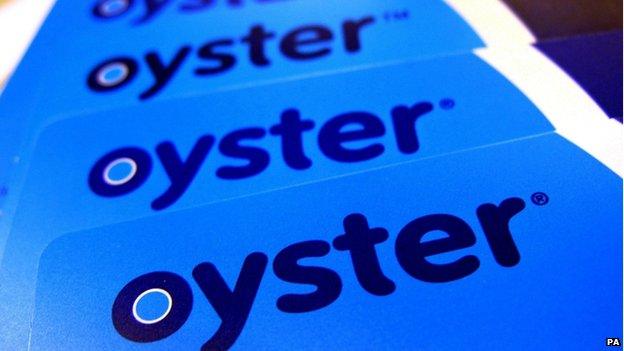
Transport for the North plans to introduce a travel card to the region, similar to the Oyster card in London
He said deals were being discussed with Liverpool City Region, Sheffield City Region, and Leeds and West Yorkshire, in return for the creation of a directly elected mayor.
The funding announcement for "Transport for the North" will lead to the introduction of a smartcard scheme similar to the Oyster card used in London.
Chris Hearld, chairman for KPMG in the North, said: "While the introduction of an Oyster card system across the north is a nice gesture in principle, it will do absolutely nothing to alleviate the lack of capacity and very little to improve the connectivity on our region's ever-crumbling rail network.
"Businesses across the north are becoming increasingly impatient and are chomping at the bit to play their part."

Arif Ansari, North West Political Editor
What happens next?
Some of these powers will only be handed over when there is a directly elected Mayor, expected in 2017.
A new Greater Manchester Land Commission will be created to build a database of public land across Greater Manchester and identify land that can be used for housing
The new directly-elected mayor will get stronger powers over planning, including making compulsory purchase orders with the consent of the relevant cabinet member at the affected council
The Greater Manchester Fire Authority will be abolished and responsibility handed to the new mayor
There will be a fundamental review of children's services across the city region, in terms of councils but also other public bodies
There will be consideration of whether Greater Manchester requires greater control over employment and skills training

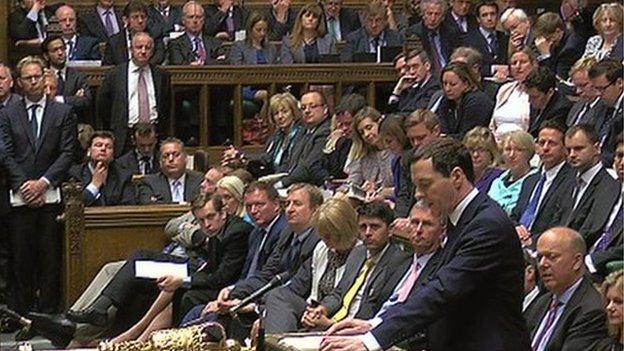
George Osborne was delivering his seventh budget to a packed house

Greater Manchester
Metropolitan area formed in 1974
Made up of 10 councils: Manchester, Salford, Bolton, Bury, Oldham, Rochdale, Stockport, Tameside, Trafford, Wigan
Population is about 2.7 million
Covers an area of about 500 sq miles
Has an economy bigger than Wales or Northern Ireland
Designated a City Region in 2011 when the Greater Manchester Combined Authority was established
Greater Manchester has already begun taking control of its health budget after a devolution agreement was signed by the Chancellor in February.
The region's 10 councils and health groups have taken over £6bn allocated for health and social care, with full powers set to be devolved in 2016.
- Published8 July 2015
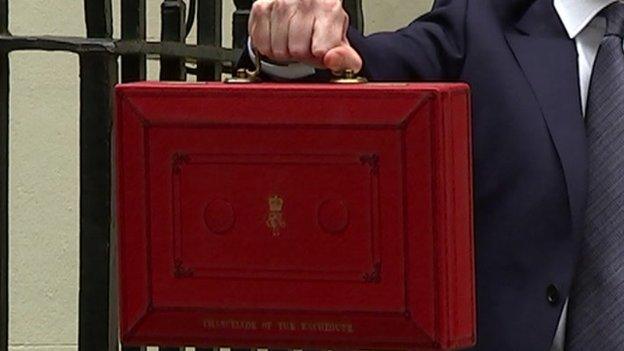
- Published7 June 2015
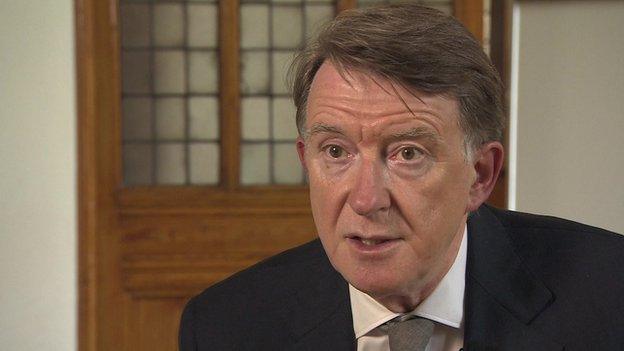
- Published14 May 2015
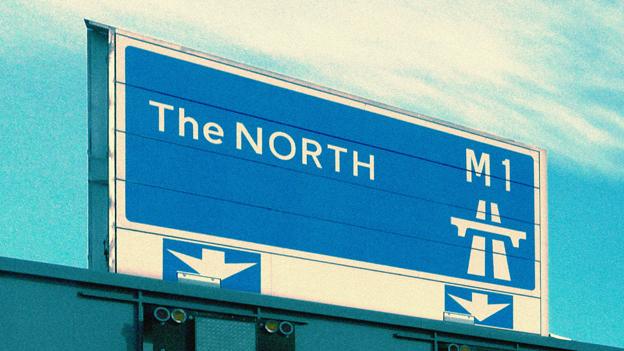
- Published14 May 2015
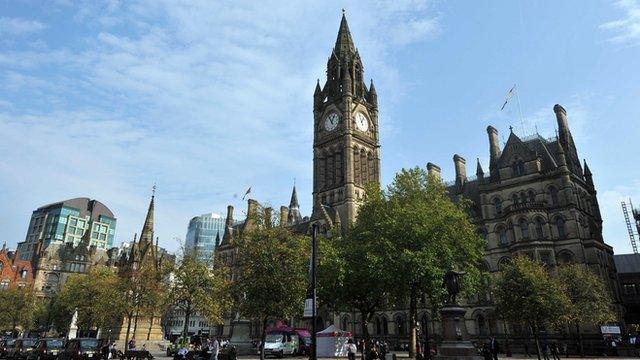
- Published27 February 2015
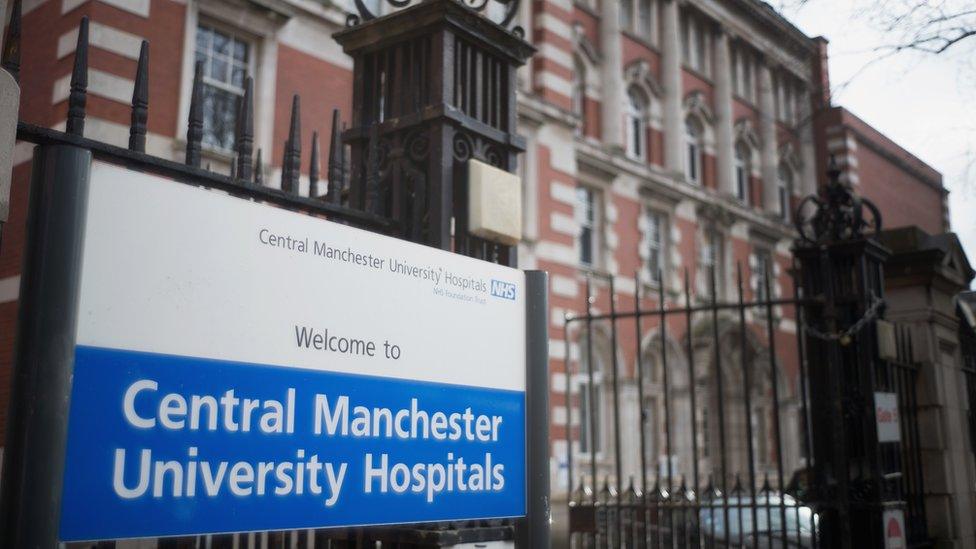
- Published3 November 2014
